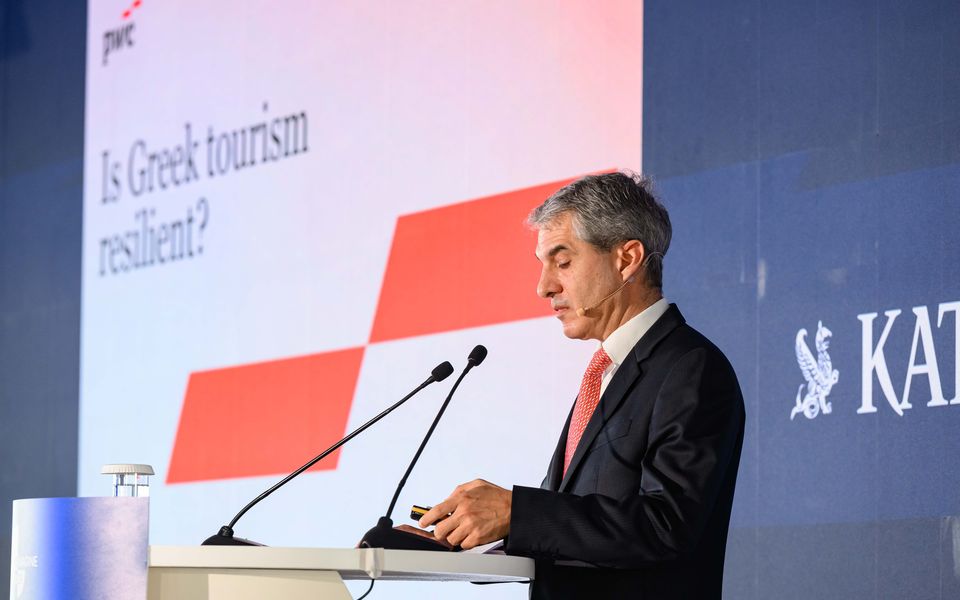Greece’s tourism sector remains vulnerable to concentrated source markets, overstretched destinations and reliance on tour operators, according to a PwC Greece study presented on Wednesday at the “Reimagine Tourism in Greece” conference in Athens.
The study, unveiled by PwC Greece director Alexandros Chloros, outlines three structural dependencies, three emerging threats and three opportunities for strengthening resilience in a sector that drew 36 million arrivals and €21.7 billion in revenue in 2024.
The conference, organized by Kathimerini, aims to shape a long-term strategy for sustainable, high-quality tourism that protects cultural heritage and supports local communities.
Three dependencies
PwC’s analysis highlights Greece’s heavy reliance on five major markets – Germany, the UK, France, Italy and, increasingly, the United States. “Focusing on key markets left the Greek market exposed to phenomena like the recession of 2010, the Covid pandemic of 2020-21, or even the impact of Brexit,” Chloros said.
A second dependency involves six island destinations – Crete, Santorini, Mykonos, Rhodes, Paros and Corfu – which absorb a disproportionate share of arrivals. “Some popular destinations, such as Mykonos, Corfu and Santorini, are under too much pressure… inadequate infrastructure challenges the sustainability of the national tourism product,” he said.
The study also points to Greece’s longstanding dependence on tour operator packages, which account for about one-third of arrivals and hospitality revenue. Chloros said the sector’s exposure became clear during the 2019 collapse of Thomas Cook, adding that the group’s rescue “helped us avoid further exacerbation.”
Three threats
PwC identifies the climate crisis as a key threat, with shifting visitor preferences already visible. “Twenty-eight percent of European tourists seem to prefer colder destinations to avoid heat,” Chloros said, noting recent demand growth in Iceland, Norway and Finland.
A second threat is Greece’s persistent high/low-season imbalance compared with competitors. “Spain, Italy and Turkey achieve balance in their seasonal shares, whereas Greece, Croatia, Albania and Cyprus remain anchored to the sea-and-sun model,” he said.
The third vulnerability is a long-term labor shortage in the tourism workforce. “There seems to be a lack of more than 50-80.000 people in recent years… by 2035 the shortage could reach 27% or 290,000 unfilled jobs,” Chloros warned.
Three opportunities
PwC says Greece can strengthen resilience by adopting smart and eco-friendly tourism solutions, pointing to northern European examples. “The Netherlands, Hungary, Finland and Ireland have promoted green solutions through targeted instruments,” Chloros said.
Developing city-break destinations is another opportunity. “Athens and Thessaloniki have begun to leverage their gastronomic and natural capital and host major international events such as the Acropolis Rally and the Athens Marathon,” he said, adding that revenues have risen accordingly.
The third opportunity is the development of new alternative destinations, with Messinia in the southwestern Peloponnese cited as a model. “The Costa Navarino resort upgraded the area and put it on the map… supported by investments in the motorway and airport,” Chloros said. But he added that broader expansion is limited by “infrastructure gaps and the lack of an adequate railway network.”

